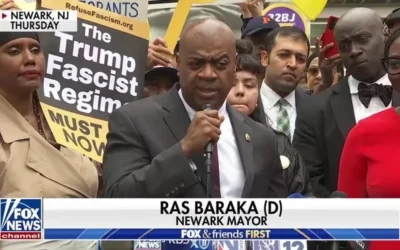Microsoft Faces Protests Over Gaza Conflict During Build Conference
In a surprising turn of events at the Microsoft Build conference, the tech giant found itself embroiled in a protest led by its own employees as tensions surrounding the ongoing Gaza conflict erupted on stage. The protests raised critical questions not only about corporate responsibility in times of humanitarian crises but also about the implications of technology in warfare.
The Disruption
During a keynote address by CEO Satya Nadella, an employee reportedly interrupted with cries of “Free Palestine,” drawing immediate attention and sparking conversations about the company’s complicity in the ongoing violence. The protest unfolded live in front of a virtual audience as the annual developer conference aimed to showcase new innovations and tools developed by the company.
Microsoft’s Response
Following the disruption, Microsoft quickly responded through official channels, asserting that there was no evidence its technology had been used to harm individuals in Gaza. The company’s statement emphasized its commitment to ethical practices, particularly in areas where conflicts erupt. Microsoft’s spokesperson claimed, “We are deeply saddened by the escalation in violence and the suffering of innocent people. Our technologies are aimed at enabling peace and productivity rather than conflict.”
The Employee Perspective
However, the protest raised eyebrows within the tech community regarding the responsibility of large corporations, particularly those that develop cutting-edge technologies. Employees who support the pro-Palestinian sentiment expressed concerns via social media and internal discussions. They contextualized their protests within a larger framework of corporate accountability, emphasizing that technologists must consider the real-world implications of their products.
Voices of Protest
The employee who initiated the disruption stated, “As a member of this company, I cannot stand by while our technologies are being used in ways that contribute to humanitarian crises. We must advocate for our values, and I believe in standing up for those who cannot stand for themselves.”
Historical Context
This incident is not the first instance where major tech companies have faced scrutiny regarding their role in global conflicts. Over the years, firms like Microsoft, Google, and Amazon have found themselves on the receiving end of protests and calls for action related to their governments’ use of technology in warfare. The ethical implications of working with government contracts have opened deliberations on whether these companies can truly be neutral or if they, by association, are complicit in global issues.
Public Reaction
The live protest garnered mixed reactions from viewers and participants of the conference. While many expressed support for the employee’s stance, others were concerned about the disruption’s impact on the broader message of the conference. Social media was rife with comments, memes, and opinions, showcasing a split in public sentiment regarding the appropriateness of the action during a corporate event.
Social Media Buzz
Twitter erupted following the disruption, with hashtags such as #FreePalestine and #MicrosoftProtests trending. Supporters of the protest cited the need for tech corporations to take moral stances in times of crisis, while critics argued that corporate conferences are not the venue for such political statements.
Looking Forward
The incident highlights the growing tension between corporate interests and employee activism. As a new generation of workers seeks to align their careers with their values, companies like Microsoft may need to reassess their political stances and consider the implications of their technologies in various global contexts.
A Call for Accountability
This protest exemplified a critical moment for the tech industry, where the lines between business, ethics, and technology are becoming more blurred. The question remains: Can major corporations like Microsoft uphold their commitment to innovation and productivity while also navigating the moral complexities of global conflicts? The answer lies in how they respond not only to the protests but also to the larger questions of accountability in their operational practices.
The Way Ahead: Corporate Social Responsibility
Going forward, it is likely that we will see increased discussions within tech companies about corporate social responsibility. Organizations may need to enhance transparency in their operations and create more avenues for employees to voice their opinions on ethical issues. Tech giants must grapple with an increasingly informed workforce that wishes to see a proactive stance against injustices worldwide.
Conclusion
The Microsoft Build protest may merely be the tip of the iceberg in what could become a larger movement within the tech community to advocate for humane and ethical uses of technology. As the lines between technology and humanity increasingly converge, corporations will need to adapt, listen, and evolve. How they choose to navigate this landscape may ultimately dictate their legacy in a rapidly changing world.







